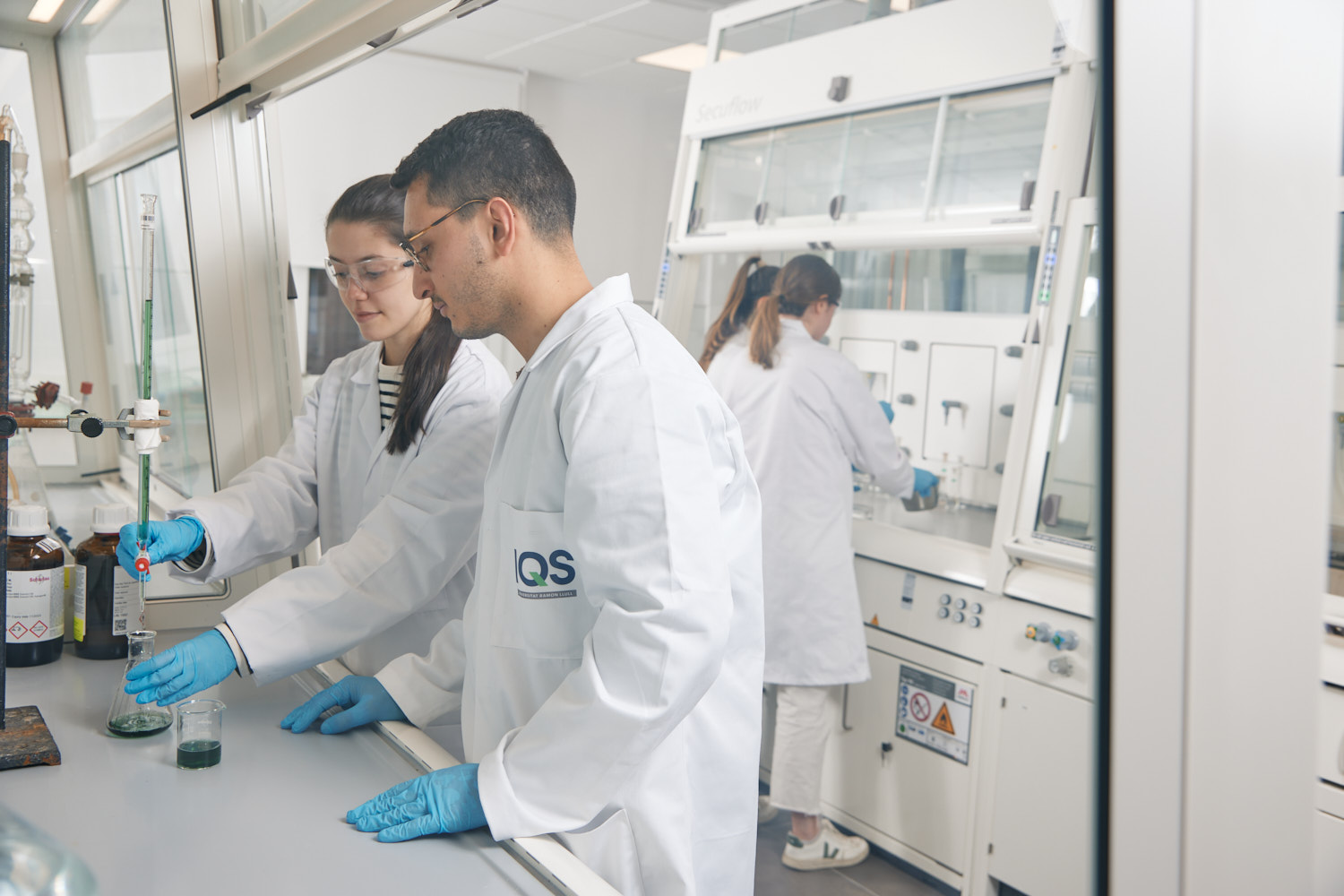IQS has launched a special call for applications for upcoming academic year 2025-2026 of the Master’s Degree in Analytical Chemistry, offering a 30% tuition discount for new students. This initiative aims to honour the legacy of Czech chemist Jaroslav Heyrovský, recognized for his contributions to analytical chemistry with the invention of polarography.
IQS launches a scholarship for the Master's Degree in Analytical Chemistry in honour of Nobel Prize winner Jaroslav Heyrovský

Jaroslav Heyrovský revolutionized science in February 1922 with the development of polarography, a pioneering method that enabled significant advances across various disciplines, including medicine. Not only did his discovery earn him the Nobel Prize in Chemistry in 1959, but it also boosted fundamental techniques for electrochemical analysis, still applied in contemporary analytical chemistry.
Today, analytical chemistry continues to be essential for guaranteeing quality and safety in sectors such as the pharmaceutical and food industries, environmental monitoring, clinical analysis, developing new materials, as well as for process certification in the energy sector. Demand remains strong for highly trained professionals in this field who boast both theoretical and practical training.
A master’s degree adapted to the labour market
The IQS Master’s Degree in Analytical Chemistry responds to labour market needs, providing graduates in Chemistry, Chemical Engineering, Pharmacy, Biochemistry, Biotechnology, and related areas with an advanced and highly practical specialization. This adapted approach is reflected in the high job placement rate of its graduates, a key added value of the programme. The main objectives of this Master’s degree are to:
– Educate specialists who are capable of selecting, developing, optimizing, and applying innovative analytical methods and strategies to tackle complex problems in various industrial and research fields.
– Train experts in handling the most advanced analytical instrumentation.
– Ensure the knowledge and application of quality management systems in the laboratory (ISO 17025 standard) and under the GMP regulatory framework. – Develop the ability to critically interpret analytical results and communicate them effectively.
To achieve these objectives, the master’s degree places a strong emphasis on hands-on training that takes place at IQS’s more than 8,700 m² of state-of-the-art laboratories. These facilities allow students to become familiar with handling advanced equipment and work on solving real analytical cases that replicate the professional environment.
Consisting of 90 ECTS credits distributed across three semesters, the curriculum delves into key instrumentation techniques such as advanced separation techniques (liquid, gas, and capillary chromatography), spectroscopic techniques (atomic and molecular absorption, mass spectrometry, and inductively coupled plasma – ICP), electroanalysis, biosensors, and omics techniques. Fundamental aspects such as sample preparation and miniaturization, chemometrics, statistical data processing, and quality management systems are also covered. The programme culminates with the completion of a Master Thesis (TFM), in which students apply the knowledge they have acquired in a research or hands-on project, often linked to IQS research groups or collaborating companies. Unlike most universities, which assign around 10 or 15 credits to the Master Thesis, the IQS programme makes it worth 30 credits, highlighting its relevance in the curriculum.
Excellence in education
“We are seeking to celebrate Heyrovský’s legacy not only by remembering his contributions, but also by facilitating access to excellence in education that will enable new generations of analytical chemists to continue innovating,” state the programme’s coordinators. “This master’s degree provides participants with the specific and multi-disciplinary skills necessary to successfully join R&D&i departments, quality control teams, or analysis laboratories, not to mention opening the door to doctoral studies.”
Graduates of the master’s degree are prepared to take on roles as senior R&D&i specialists, quality managers (QA/QC), laboratory analysts in various sectors (pharmaceutical, food, environmental, clinical, etc.), technical or sales specialists, consultants, or pre-doctoral researchers.
With this 30% tuition discount initiative for 2025-2026, IQS is offering a unique opportunity for professionals who wish to specialize in a field with excellent job prospects, alignment with market needs, and a focus on innovation and excellence.









